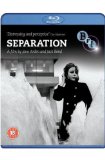![Valentino [1977]](/pictures/1005401.jpg) Valentino | DVD | (12/04/2005)
from £11.10
| Saving you £-5.11 (N/A%)
| RRP
Valentino | DVD | (12/04/2005)
from £11.10
| Saving you £-5.11 (N/A%)
| RRP Premier ballet dancer Rudolph Nureyev makes his acting debut in this lavish story of the life of the famous silent screen actor Rudolph Valentino who caused female moviegoers to riot in the streets upon his death. Controversial director Ken Russell lavishly recreates the glitzy and decadent atmosphere of the roaring 20's and the presence of Nureyev as Valentino imbues the film with passion rarely found in Hollywood.
![Sunshine [2000]](/pictures/1020346.jpg) Sunshine | DVD | (10/04/2013)
from £19.39
| Saving you £0.60 (3.09%)
| RRP
Sunshine | DVD | (10/04/2013)
from £19.39
| Saving you £0.60 (3.09%)
| RRP This sprawling family saga follows a Hungarian-Jewish family across three generations, and stars Ralph Fiennes as the father, the son, and the grandson in three distinctly different roles. As a Europudding vehicle for Fiennes and a top-drawer cast (including Jennifer Ehle, Rachel Weisz, Deborah Unger, Miriam Margolyes and William Hurt), Sunshine delivers on all fronts: there's glossy melodrama, high-moral seriousness as history wears the family down like the wind, and leitmotifs--the family elixir called "Sunshine" that founds their fortune, semi-incestuous adulterous liaisons, photographs and faces--that thread the epic three-hour narrative together. Fiennes begins as a stiff Budapest lawyer-cum-officer and judge during the First World War, torn when anti-Semitism raises its head. His son is a champion fencer who denounces the family faith to attain advancement but ends up in the Nazi-run labour camps all the same. The last in the line, a policeman this time, must navigate the Stalinist forces of repression and endures through the 1956 uprising to take back the family name and faith. And yet as a film by director István Szabó (Colonel Redl, Mephisto), it's a bit of a soggy disappointment lacking the bile and spit and visual inventiveness that makes the best of his other works so outstanding. Perhaps the fact that Szabó is directing an all-English speaking cast is the problem, leaving the film feeling strangely old-fashioned and paradoxically lacking a sense of place (despite much of it being filmed in Hungary itself). Although there are some charged emotional beats throughout, pretty costumes, and lots of entertainingly tasteful bonking sequences, the fencing sequences in particular become tooth-pullingly tedious and the whole thing seems to drag, especially as it takes itself so seriously. --Leslie Felperin
![Leon the Pig Farmer [1992]](/pictures/1015694.jpg) Leon the Pig Farmer | DVD | (15/07/2002)
from £8.99
| Saving you £7.00 (77.86%)
| RRP
Leon the Pig Farmer | DVD | (15/07/2002)
from £8.99
| Saving you £7.00 (77.86%)
| RRP Hailed as "genre-breaking stuff" on its release in 1992, this is the tale of a London estate agent who find he's the son of a Yorkshire pig farmer.
![Separation [DVD]](/pictures/1094144.jpg) Separation | DVD | (13/07/2009)
from £28.99
| Saving you £-9.00 (N/A%)
| RRP
Separation | DVD | (13/07/2009)
from £28.99
| Saving you £-9.00 (N/A%)
| RRP Separation concerns the inner life of a woman during a period of breakdown - marital and possibly mental. Her past and (possible?) future are revealed through a fragmented but brilliantly achieved and often humorous narrative in which dreams and desires are as real as the 'swinging' London (complete with Procul Harum music and Mark Boyle light show) of the film's setting.
![The New Avengers: The Complete Series - Episodes 1-26 [DVD]](/pictures/1130312.jpg) The New Avengers: The Complete Series - Episodes 1-26 | DVD | (02/09/2002)
from £N/A
| Saving you £N/A (N/A%)
| RRP
The New Avengers: The Complete Series - Episodes 1-26 | DVD | (02/09/2002)
from £N/A
| Saving you £N/A (N/A%)
| RRP Sometimes dismissed as a pale descendant of a great original, The New Avengers deserves a second look and is perhaps best considered as a largely successful attempt to re-imagine its predecessor for 1970s audiences. Patrick McNee was never the most convincing of action heroes, and the decision to make his John Steed the supervisor and mentor of two younger agents was a sensible one--Steed's virtues are style, wisdom and fortitude rather than physical prowess. Gareth Hunt's Gambit has an unattractively smug side, but has also a louche charm. Joanna Lumley's Purdey is one of the most attractive heroines of genre television, astonishingly leggy and beautiful. Those who only know her later incarnation as Patsy in Absolutely Fabulous will understand now why such a fuss is made over her. The script team overlaps heavily with that of the original series; the new show has the same quirkiness, only occasionally varying it with a rather darker leCarrésque complexity or sudden outbreaks of Hammer Horror. If it lacks some of the sheer style of the original, that is a reflection of its period--the 1970s were less visually imaginative than the 60s. Tightly plotted, imaginatively cast with interesting guest stars, it is only with The Avengers that The New Avengers suffers by comparison. --Roz Kaveney
 Separation (Blu-Ray) | Blu Ray | (13/07/2009)
from £N/A
| Saving you £N/A (N/A%)
| RRP
Separation (Blu-Ray) | Blu Ray | (13/07/2009)
from £N/A
| Saving you £N/A (N/A%)
| RRP Separation concerns the inner life of a woman during a period of breakdown - marital and possibly mental. Her past and possible future are revealed through a fragmented but brilliantly achieved and often humorous narrative in which dreams and desires are as real as the 'swinging' London (complete with Procul Harum music and Mark Boyle light show) of the film's setting.

Please wait. Loading...
This site uses cookies.
More details in our privacy policy